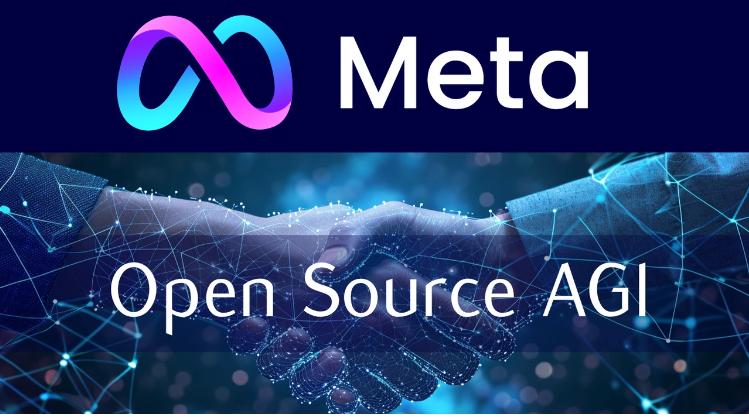Introduction:
In a groundbreaking disclosure, Meta AI’s CEO, Mark Zuckerberg, has unveiled an ambitious project to develop an open-source Artificial General Intelligence (AGI) system. This innovative endeavor is set to advance artificial intelligence to unprecedented levels, aspiring to create a system that replicates human thinking, learning, and understanding. The implications are extensive, offering the prospect of a transformative impact on our daily interactions with technology.
The Vision:
Meta aims to make AI more accessible and integral to various services and devices, picturing a future where AI becomes a vital tool for enhancing productivity and simplifying daily tasks. The project goes beyond traditional AI assistants, delivering real-time assistance through devices like smart glasses, offering immediate information, helping with tasks, and even providing innovative problem-solving solutions.
Infrastructure Investment:
To realize this vision, Meta is investing significantly in cutting-edge technology, exemplified by the procurement of Nvidia H100 GPUs. These powerful processors play a vital role in managing the intricate computations essential for AGI systems, establishing a strong foundation for the progression of advanced AI capabilities.
Integration with the Metaverse:
In Zuckerberg’s strategic blueprint, there exists a proposal to integrate AGI with the metaverse, shaping a virtual realm for immersive interactions among users and digital surroundings. The incorporation of AI into smart glasses facilitates real-time assistance, enabling the AI to understand the user’s perspective and potentially revolutionize the metaverse experience, establishing a more interactive and responsive digital environment.
Understanding AGI:
AGI stands at the forefront of technological advancement, embodying a blend of machine learning and human-like adaptability. In contrast to narrow AI, which is crafted for specific tasks, AGI takes a broader and more versatile approach. It demonstrates capabilities in learning, reasoning, understanding context, and generalizing knowledge across diverse domains.
The Journey to AGI:
Advancements in machine learning, cognitive computing, and neuroscience are integral to the development of AGI. Leading the way in creating intelligent and adaptable systems are companies like Meta, Google, and OpenAI. This progression involves making machine learning the cornerstone, incorporating neuroscience-inspired models to emulate general intelligence, and addressing ethical considerations concerning privacy, security, and societal impact.
Challenges on the Road to AGI:
Despite the substantial potential of AGI, numerous hurdles must be overcome. These challenges encompass the requirement for significant computational power, the delicate equilibrium between data demands and privacy considerations, and a comprehensive understanding of human cognition.
Conclusion:
Meta’s unveiling of an open-source AGI initiative represents a crucial moment in the evolution of artificial intelligence. With a commitment to advancing AI integration, improving infrastructure, and exploring possibilities in the metaverse, the future of AI holds promise. As the world observes the complexities of AGI development, the success of this venture could introduce a new era where AI evolves beyond being a tool and truly becomes a companion in our daily lives, revolutionizing how we engage with technology.


